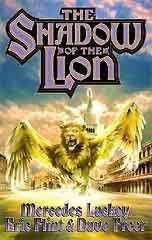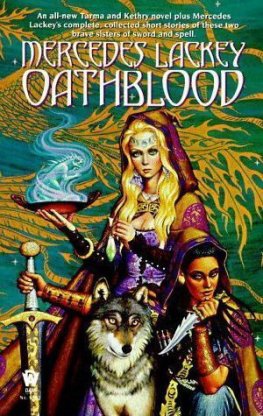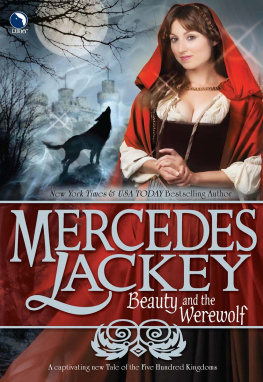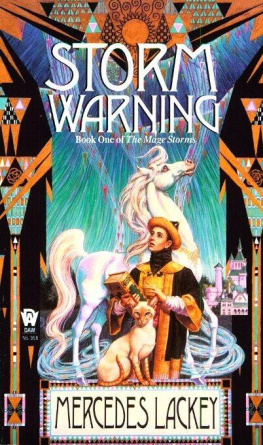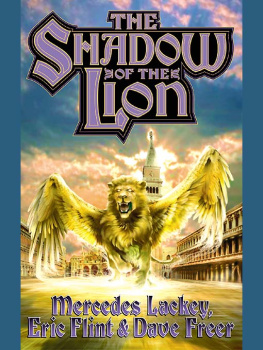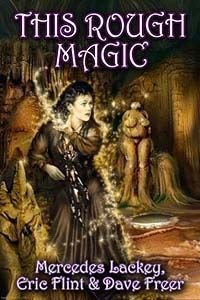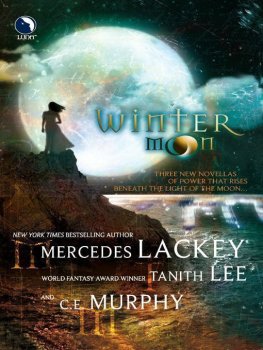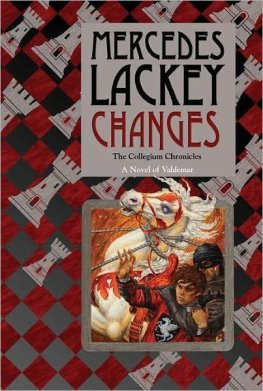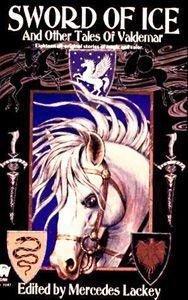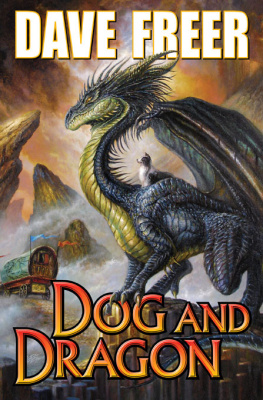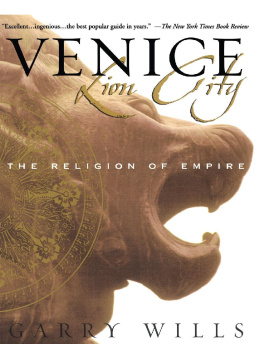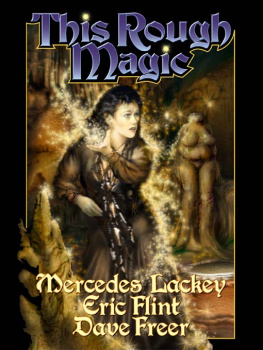Shadow of the Lion
Mercedes Lackey, Eric Flint, David Freer
Prologue
April, 1537 A.D.
===================================
MAINZ
-----
The yellow lantern-lights of Mainz's dockside inns reached out across the dark Rhine. Standing on the prow of the riverboat, Erik Hakkonsen stared at them, thinking of little more than food and a bed. He'd left his home in Iceland three weeks earlier, to answer the Emperor's summons. They'd had a stormy crossing. Then the late spring thaw had ensured that the roads of the Holy Roman Empire were fetlock deep in glutinous mud. And, finally, the river had been full and the rain steady. Tomorrow he would have to go to the Imperial palace, and find out how to seek an interview with Emperor Charles Fredrik.
But tonight he could sleep.
The riverboat nudged into the quay. A wet figure stepped out from under the eaves of the inn. "Is there one Erik Hakkonsen on this vessel?" he demanded, half-angrily. The rain hadn't been kind to the skinny courtier's bright cloak. The satin clung to him, and he was shivering.
Erik pushed back his oilskin-hood. "I'm Hakkonsen."
"Thank God for that! I'm soaked to the skin. I've been here for hours," complained the man. "Come. I've got horses in the stable. The Emperor awaits you."
Erik made no move. "Who are you?"
The fellow shivered. "Baron Trolliger. The Emperor's privy secretary." He held out his hand to show a heavy signet. It was incised with the Roman Eagle.
That was not a seal anyone would dare to forge. Erik nodded. "I'll get my kit."
The shivering baron shook his head. "Leave it." He pointed to the sailor who had paused in his mooring to stare. "You. Watch over this man's gear. Someone will be sent for it."
As much as anything else, the alacrity with which the sailor obeyed the order drove home the truth to Erik. He was in the heart of the Holy Roman Empire, for a certainty. In his native Iceland--or Vinland, or anywhere else in the League of Armagh--that peremptory order would have been ignored, if not met with outright profanity.
"Come," the baron repeated. "The Emperor is waiting."
* * *
Passing from the narrow dark streets and sharp-angled tall houses into the brightness of the imperial palace, Erik had little time to marvel and gawk at the heavy gothic splendor of it all. Instead, Baron Trolliger rushed him through--still trailing mud--into a large austere room. As soon as Erik entered, the baron closed the door behind him, not entering himself.
In the center of the room, staring at Erik, stood the most powerful man in all of Europe. He was a large man, though now a bit stooped from age. His eyebrows seemed as thick and heavy as the purple cloak he was wearing; his eyes, a shade of blue so dark they almost matched the cloak.
Charles Fredrik. The latest in a long line of Hohenstauffens.
Guardian of the Church, Bulwark of the Faith. Lord of lands from northern Italy to the pagan marches in the Baltic. Ruler over millions of people throughout central Europe.
The Holy Roman Emperor, himself. In direct line of descent from the great Fredrick Barbarossa.
All of that mattered little to Erik. His tie to the Emperor was a clan tie, not a dynastic one. He was there to become the Emperor's servant, not his subject. So, Erik simply bowed to the old man, rather than kneeling, and spoke no words of fealty. Simply the old oath: "Linn gu linn."
The words were Gaelic, but the oath that bound him came from the cold fjells of pagan Norway. An oath that went back generations, to the time when a Hohenstauffen prince had rescued a pagan clan from demons set loose by their own foolishness.
Charles Fredrik spoke like an old man--despite being no older than Erik's father. But he voiced the ritual words strongly. "From generation to generation."
He held out the dagger that Erik had heard described with infinite care all his life. The dagger was iron. Old iron. Sky iron. Hammered with stone in the pagan Northlands, from a fallen thunderbolt. The hilt was shaped into a dragon head--the detail lost in the blurring of hundreds of years of use.
It still drew blood for the blood-oath like new steel did. "Blood for blood. Clan for clan." Erik renewed the oath calmly.
After binding their wounds himself, Charles Fredrik took Erik by the elbow and led him across to a window. The window was a mere arrow-slit, testimony to the palace's ancient origins. Against modern cannon, such fortifications were almost useless. But . . . there was a certain undeniable, massive dignity to the huge edifice.
There they stood, silent for some time, looking out at the scattered shawl of lights which was the great sleeping city of Mainz. Erik was quite sure that those lights represented more people than lived in all Iceland. Their lives, and those of many more, rested in the hands of the old man standing next to him.
The Emperor seemed to have read his thoughts. "It is a great load, at times," he said softly.
His heavy jaws tightened. The next words were spoken almost harshly. "I have called for the Clann Harald because my heirs have need. My son is . . . very sickly. And I do not expect my only surviving brother to outlive me. Not with his wounds. So I must take special care to watch over my two nephews, for it is quite likely that one of them will succeed to the throne after I am gone."
The Emperor sighed. "Your older brother Olaf watched over my nephew Conrad for his bond-time, as your father Hakkon watched over me." A slight smile came to his face. "To my surprise, I find I miss him. He used to beat me, you know."
"He has told me about it, Godar of the Hohenstauffen." Erik did not add: Often.
Charles Fredrik's smile broadened. "According to your brother Olaf--'often.' " He chuckled. "It did me the world of good, I eventually came to realize. Nobody had dared punish me before that. Do you know that your family are the only people in the world who don't call me 'Emperor,' or 'Your Imperial Highness?' I think it is why we trust you."
"Our loyalty is to the Godar of the Hohenstauffen. Not to the Empire." That too his father had said. Often.
"You must sit and tell me the news of them once I have given you your task. I warn you, it will be a more onerous chore than Olaf's. Manfred, my younger nephew, reminds me of myself at that age. You will have to--as your father did with me--serve as confrere in the monastic order of the Knights of the Holy Trinity. Of course--as then--your identity and purpose must remain secret. Manfred's also."
Erik nodded. "My father has told me about the Knights."
The Emperor's eyes narrowed. "Yes. But things have changed, Hakkonsen. It is one of the things that worries me. The Knights have always been--nominally, at least--independent of the Empire. Servants of God, not of any earthly power. In practice they have served as the Empire's bulwarks to the North and East. In your father's day the nobility from all the corners of the Holy Roman Empire came to serve as the Knights of Christ, in the pious war against the pagan. And many brave souls came from the League of Armagh, not just the handful of Icelanders sworn by clan loyalty to the service of the Emperor."
Erik nodded again. "My grandfather says that in his day, Aquitaines made up as many as a quarter of the order's ranks."
The Emperor clenched his fist, slowly. "Exactly. Today, no knight from that realm would dream of wearing the famous tabard of the Knights of the Holy Trinity. Once the brotherhood Knights were truly the binding threads in the cloak of Christianity. Today . . . the Knights of the Holy Trinity come almost entirely from the Holy Roman Empire. Not even that. Only from some of its provinces. They're Prussians and Saxons, in the main, with a small sprinkling of Swabians. A few others."
He paused. Then he looked Erik in the eyes. "They're beginning to take an interest in politics. Far too much for my liking. And they're also--I like this even less--getting too close to the Servants of the Holy Trinity. Damn bunch of religious fanatics, that lot of monks."
Next page
